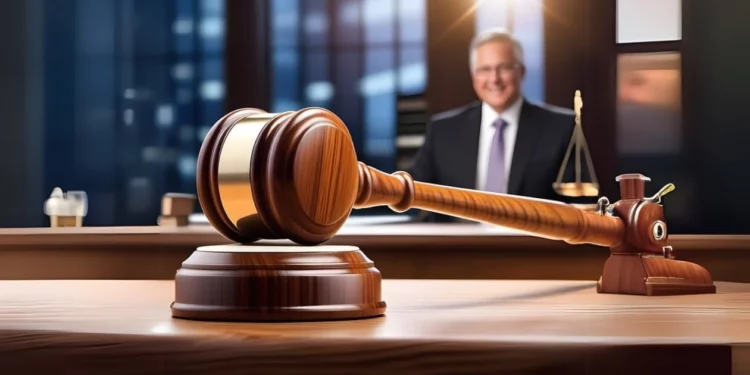Slip and fall accidents can occur in an instant, transforming a routine day into a serious legal and medical ordeal. These accidents are often unexpected and can lead to a range of injuries, from minor bruises to severe trauma. The aftermath can be confusing and overwhelming. Knowing how to respond immediately is crucial, not only for your health but also for your legal rights. This comprehensive guide offers a clear, step-by-step approach to the actions you should take following a slip and fall accident to safeguard your well-being and preserve your ability to seek compensation if necessary.
Step 1: Ensure Your Safety
Assess Your Situation
- Check for Immediate Danger: Once you’ve fallen, the first priority is your safety. Assess your surroundings. Are there hazards present that could pose additional risks? Common dangers include wet floors, uneven surfaces, broken stairs, or other obstructions. Understanding the environment can prevent further injury.
- Move to Safety: If it is safe to do so, carefully distance yourself from the hazard that caused your fall. Your immediate goal is to avoid additional injuries. This may mean moving to a stable, safe area where you can gather your thoughts and assess your condition.
Seek Medical Attention
- Get Medical Help: If you feel severe pain, dizziness, or difficulty moving, it’s imperative to call for medical assistance without delay. Do not attempt to walk or move if you suspect a serious injury, as this could exacerbate your condition.
- Visit a Doctor: Even if you feel fine initially, it’s advisable to see a healthcare professional. Some injuries, such as concussions or internal injuries, may not present immediate symptoms. A medical evaluation can identify hidden injuries and provide necessary treatment, creating a record of your condition linked to the accident.
Step 2: Document the Incident
Gather Evidence
- Take Photos: In the wake of an accident, your memory might fade. Use your smartphone to document the scene. Capture images of the location, focusing on the specific hazard that caused your fall, whether it’s a wet floor, broken tiles, or insufficient lighting. Photos can serve as crucial evidence should you need to pursue a claim later.
- Record Witness Information: If there were any witnesses to your accident, gather their names and contact details. Their accounts could be invaluable if you decide to file a claim in the future. Witness statements can corroborate your version of events and strengthen your case.
Write Down Details
- Document Your Experience: As soon as possible, write a detailed account of what occurred. Include the time, date, location, and circumstances leading up to the fall. This record will be essential in recounting events accurately later on.
- Note Your Injuries: Record any injuries you sustained during the fall. Include details about pain levels, symptoms, and any changes in your physical state. This information will be crucial for your medical treatment and any potential claims.
Step 3: Report the Incident
Notify the Property Owner or Manager
- Inform Responsible Parties: If your slip and fall happened on private property, it’s vital to report the incident to the property owner or manager. Provide them with a clear, factual account of what happened. This step is essential for ensuring that the property owner is aware of the hazard, which could prevent future accidents.
- Request an Incident Report: Ask the property manager to create an official report of the incident. Ensure you receive a copy for your records. This document can be instrumental in supporting your claim and showing that the incident was officially recorded.
File a Report with Authorities (if applicable)
- In Public Places: If your slip and fall occurred in a public place, consider filing a report with local authorities or the management of the establishment. Reporting the incident not only helps document it for future reference but also brings the hazard to the attention of those responsible for maintaining safety.
Step 4: Seek Legal Advice
Consult with a Personal Injury Lawyer
- Understand Your Rights: It’s essential to consult with a personal injury attorney specializing in slip and fall cases. They can provide valuable guidance regarding your legal rights and options for pursuing compensation. An experienced lawyer can help clarify the complexities of liability, insurance claims, and potential compensation amounts based on your injuries.
- Review Potential Claims: A qualified lawyer can help you assess whether you have a valid claim based on the circumstances of your accident and the evidence you’ve collected. They can also help identify liable parties, such as property owners or managers who failed to maintain a safe environment.
Consider Legal Deadlines
- Know the Statute of Limitations: Each state has specific deadlines for filing personal injury claims, known as statutes of limitations. Understanding these deadlines is crucial; if you miss the window, you may lose your right to seek compensation. Consulting with an attorney ensures you meet these deadlines and preserves your legal options.
Step 5: Keep Records of Everything
Document Medical Treatment
- Maintain Medical Records: Keep a comprehensive record of all medical treatments related to your injuries. This includes doctor visits, prescriptions, physical therapy, and any other related expenses. A thorough medical record will be essential in substantiating your claim and demonstrating the extent of your injuries.
- Save Receipts: Retain all receipts and bills associated with your medical treatment and any other costs incurred due to the accident. This documentation will be vital when calculating the total expenses related to your injury.
Record Time Off Work
- Document Lost Wages: If your injuries cause you to miss work, maintain detailed records of the time lost and any wages forfeited. This information may be significant if you seek compensation for lost income. Keep pay stubs, timesheets, or any relevant documents that can substantiate your claims of lost earnings.
Step 6: Be Cautious with Communication
Avoid Admitting Fault
- Don’t Take Blame: After an accident, be careful not to admit fault or make statements that could be interpreted as an admission of liability. Stick to the facts when discussing the incident with others, including witnesses and property owners. Any admission of fault can jeopardize your ability to seek compensation later.
Limit Communication with Insurance Companies
- Consult Your Attorney First: If contacted by insurance companies (yours or the property owner’s), refrain from providing statements or negotiating settlements without first consulting your attorney. Insurance adjusters are trained to minimize payouts, and their primary objective may not align with your best interests. Protect yourself by allowing your attorney to handle communications with insurers.
Step 7: Follow Up on Your Health and Legal Process
Continue Medical Care
- Follow Your Doctor’s Advice: Adhering to your treatment plan is crucial. Attend all follow-up appointments and follow your doctor’s recommendations. This not only aids in your recovery but also provides documentation of your injuries and treatment for your claim. Consistent medical care demonstrates the seriousness of your injuries and your commitment to recovery.
Stay Informed About Your Case
- Keep in Touch with Your Lawyer: Regularly communicate with your attorney to stay updated on the progress of your case and any necessary actions you need to take. An open line of communication ensures that you remain informed and can make timely decisions regarding your case.
Conclusion
Viles & Beckman, LLC understands that experiencing a slip and fall accident can be overwhelming, leaving you uncertain about your next steps. However, knowing what to do immediately afterward can significantly impact both your recovery and any potential legal claims. By prioritizing your safety, thoroughly documenting the incident, reporting it to the appropriate parties, seeking legal advice, and maintaining detailed records, you protect your rights and interests.
In the aftermath of a slip and fall, remember that you are not alone. Legal professionals at Viles & Beckman, LLC are available to guide you through the complex process and help you pursue the compensation you deserve. By taking these essential steps, you can navigate the aftermath of an accident with confidence, ensuring that your health and legal rights are prioritized throughout your recovery.
Whether it involves physical therapy, medical bills, or lost wages, every aspect of your recovery deserves attention. By following this guide, you position yourself for both a thorough recovery and a potential legal resolution that compensates you for your suffering and losses. Take control of your situation, and don’t hesitate to reach out for professional support when you need it most. Your health and well-being are paramount, and understanding the process can empower you to take the necessary steps toward recovery.









